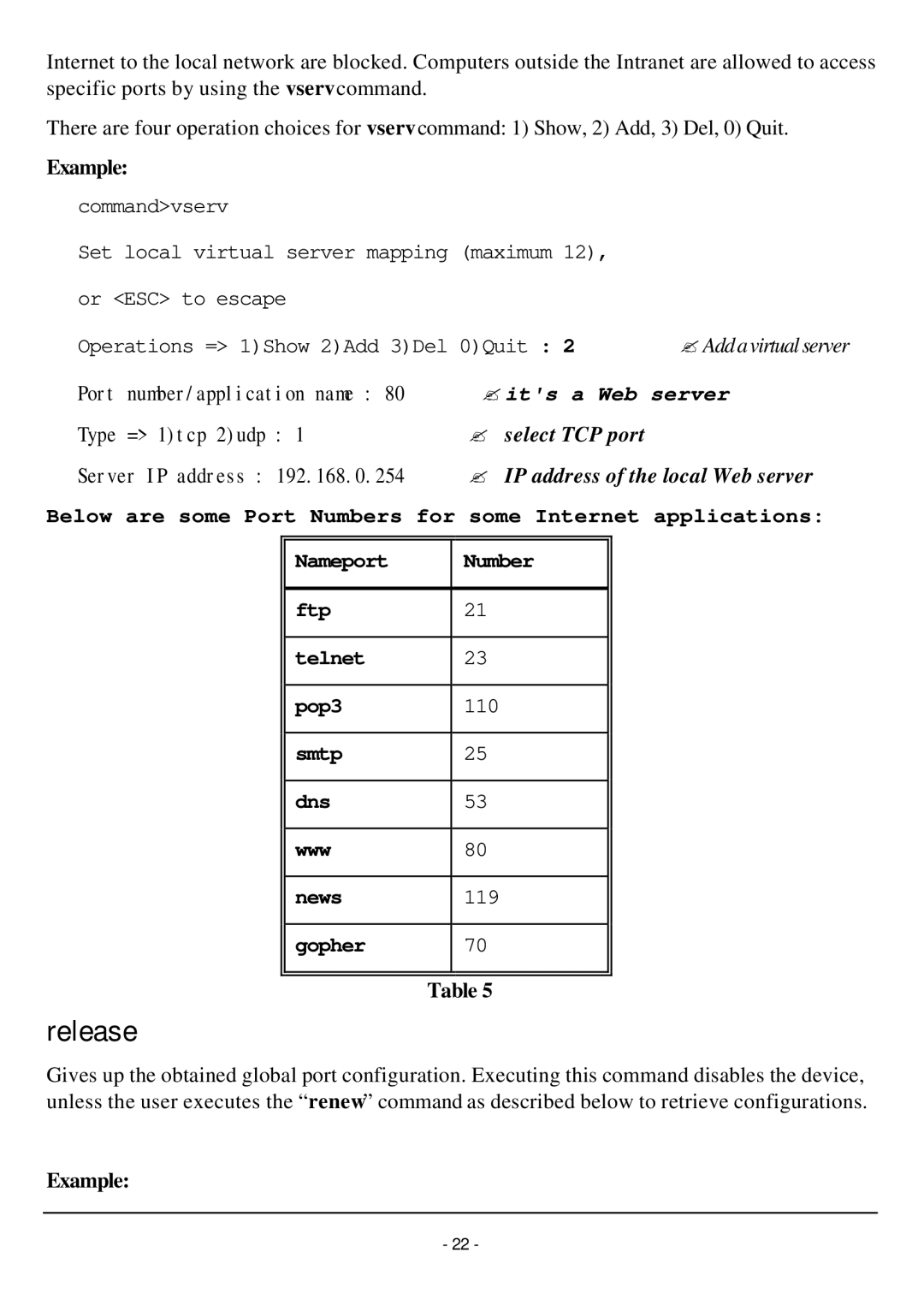Internet to the local network are blocked. Computers outside the Intranet are allowed to access specific ports by using the vservcommand.
There are four operation choices for vservcommand: 1) Show, 2) Add, 3) Del, 0) Quit.
Example:
command>vserv
Set local virtual server mapping (maximum 12),
or <ESC> to escape |
|
|
Operations => 1)Show 2)Add 3)Del 0)Quit : 2 | ?Add a virtual server | |
Port number/application name : 80 | ?it's a Web server | |
Type => 1)tcp 2)udp : 1 | ? select TCP port |
|
Server IP address : 192.168.0.254 | ? IP address of the local Web server | |
Below are some Port Numbers for some Internet applications:
|
|
|
Nameport |
| Number |
|
|
|
ftp |
| 21 |
|
|
|
telnet |
| 23 |
|
|
|
pop3 |
| 110 |
|
|
|
smtp |
| 25 |
|
|
|
dns |
| 53 |
|
|
|
www |
| 80 |
|
|
|
news |
| 119 |
|
|
|
gopher |
| 70 |
|
|
|
|
| |
| Table 5 | |
release
Gives up the obtained global port configuration. Executing this command disables the device, unless the user executes the “renew” command as described below to retrieve configurations.
Example:
- 22 -
